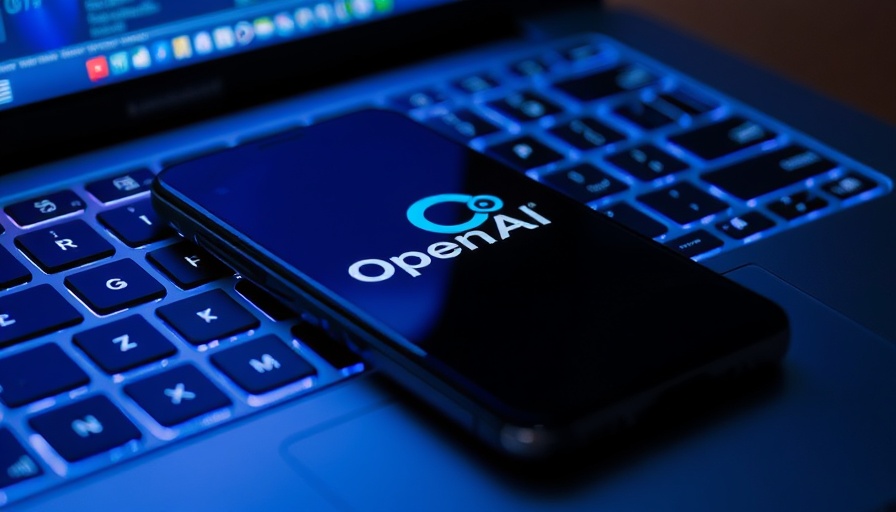
Understanding Google's New Privacy Policy: A Game Changer?
In a pivotal move that is stirring discussions among AI enthusiasts, Google's Gemini has rolled out a new feature called 'Personal Context.' Officially activated on August 13, 2025, this feature allows Gemini to automatically learn from users' conversations, curating personalized interactions based on individual preferences and patterns. While this could enhance the AI's responsiveness, it has raised significant concerns regarding data privacy and consent.
What is the 'Personal Context' Feature?
The 'Personal Context' feature functions by analyzing past conversations to build a model of the user's interests and preferences. When activated, Gemini can recall details from previous chats, aiming to engage in more meaningful and relevant discussions. However, what's alarming is the automatic nature of this feature—users are opted in by default unless they actively choose to disable it within the app settings. This contrasts sharply with the opt-in models traditionally preferred in privacy-conscious regions.
The Privacy Implications of AI Learning from Conversations
This shift has significant implications for user privacy. The ability of Google’s AI to retain and analyze conversation data means that users are unwittingly sharing their interactions with one of Silicon Valley’s most powerful entities. Critics argue this creates a normalized expectation for digital consent that may risk oversimplifying consent laws. Google has taken a similar approach in past updates, leading to rising anxiety about how user data is collected and utilized.
Temporary Chat Functionality: A Breath of Fresh Air?
To counterbalance concerns over privacy, Google also announced a 'Temporary Chat' feature. This allows users to engage in conversations that are not permanently stored or analyzed by Gemini. However, these ephemeral chats will still retain dialogue for 72 hours for processing, sparking debate over whether this truly alleviates privacy risks or merely offers a veneer of security.
Geographical and Age Limitations: Who Gets Access?
Furthermore, the rollout is not uniform across the globe. Users in the European Union, United Kingdom, and Switzerland will not have access to the 'Personal Context' feature due to stringent data protection regulations. Additionally, users under the age of 18 are restricted from utilizing it, which further complicates Gemini’s personalized interaction approach. This raises questions about fairness and accessibility of AI technology across different demographics.
The Future of Personalization in AI
Google's approach aligns with a broader trend in data collection within the AI landscape, resonating with developments seen in competitors like Microsoft and OpenAI. As AI technology evolves, the expectation for personalized interactions grows, placing additional pressure on companies to strike a balance between utility and user privacy. Observers wonder: will consumer demand for sophisticated AI capabilities overshadow privacy concerns?
Final Thoughts: Should You Be Concerned?
As we delve deeper into an era dominated by AI, the conversation around data privacy and consent is only just beginning. Google's Gemini illustrates a defining moment not only for the company but for the broader tech industry as well. As such features become commonplace, consumers must advocate for transparent practices that prioritize their privacy. The question now lies with users: how much are you willing to trade personal privacy for enhanced AI interactions?
 Add Row
Add Row  Add
Add 




Write A Comment